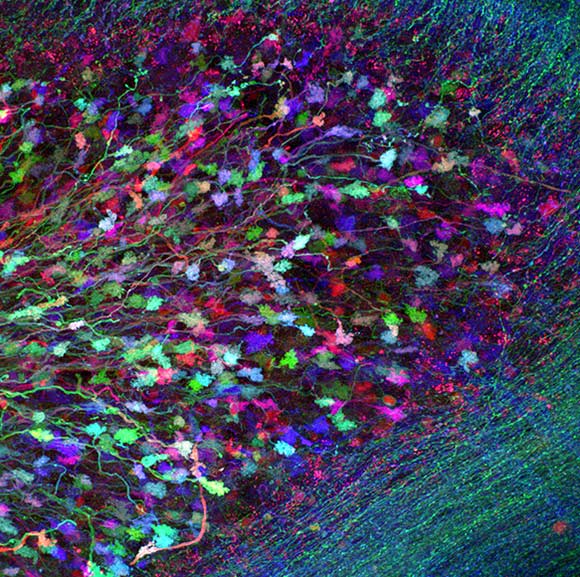Neural network

Neural Networks are how brains and AI are able to learn. Therefore, learning how a neural network works is a necessary prerequisite for understanding how the self-organizing brain creates consciousness.
“Neurons that fire together, wire together.” - Donald Hebb
Neural Networks Simplified, Perhaps a Little Too Much
The actual coordinated behavior of a brain's neural network is far more complex than this basic explanation. But knowing the gist of how neurons work can give you huge insight into your own consciousness, free will, and habits.
Training a neural network is done with Operant Conditioning. There are 4 aspects to operant conditioning:
- Positive Reinforcement - you did something good
- Negative Reinforcement - something bad was taken away
- Positive Punishment - you did something bad
- Negative Punishment - something good was taken away
Every emotion is a combination of these four conditions with the nature (food, sex, attention, injury, etc.) and salience of the reinforcement or punishment. Take love as an example:
- Positive Reinforcement - you fall in love
- Negative Reinforcement - loneliness was taken away
- Positive Punishment - you get into bondage
- Negative Punishment - your partner leaves you for the dominatrix
Do the same thing with each of our basic evolutionary survival instincts like food, shelter, health, family, etc. and you create all of the core emotions like joy, fear, jealousy, anger, sadness, surprise, and happiness. This is how our consciousness experiences the training of our neural network subjectively.
In terms of wiring, you can think about it this way. Our neurons connect our senses to our muscles, and the synapses connect the neurons to each other. The probability that one neuron will fire the next depends on the strength of that connection. Every sense stimuli has a particular pattern of neurons that fire from our eyes, ears, nose, tongue, and skin, which go through a probability matrix in our synapses to determine which muscles are activated and what we ultimately do. Depending on the reinforcement or punishment received as a result, the synaptic connections are modified accordingly.
- Positive Reinforcement - synapses grow "stronger", improving the chances that you'll do this again
- Negative Reinforcement - synapses grow "stronger", improving the chances that you'll avoid the bad thing next time
- Positive Punishment - synapses are "weakened", decreasing the chances you'll do whatever caused the punishment
- Negative Punishment - synapses are "weakened", decreasing the chances you'll do whatever caused the good thing to go away
Of course, this system offers no room for free will since every action is simply a probability based on the stimulus of the environment and the neural network training provided by our conditioning. But there are a lot of different stimuli, possible actions, and neurons in-between, which makes the infinite combinations they lead to really seem like free will. The fact that we can only know the statistical likelihood of a particular choice rather than knowing it with certainty also helps make for a good approximation of free will.
But when you really think about it, each day you really only have a handful of options to choose from, and you always tend towards your favorites. Forget about all the days where you have to go to work and have only that single option, even on days off most people tend towards the habitual unless they make it a point not to. This is our natural tendency, due to the fact that the things we do more often are reinforced more and more, and so become even more likely to be done again in the future. This is why moderation and variety are needed to avoid addiction.
Our brains are a probability matrix made of neurons that determine our actions. This means that if you want to change your actions to improve your life choices, you need to re-train your brain.
Videos that Actually Explain Neural Networks
Train your neural network with videos on neural networks. Meta.